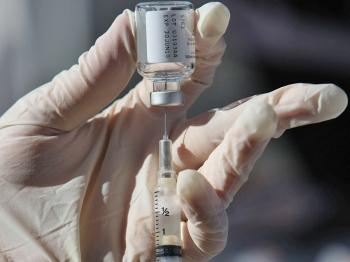Push for Tighter Vaccination Compliance Raises Concerns
A Ministry of Health inquiry has raised concerns that a bid to take vaccination education and compliance to a new level, could lead to discrimination

Ministry of Health recommendations have set a target of immunising 95 percent of six-month-old babies, two-year and four-year old children within the next 12 months. Robyn Beck/AFP/Getty Images
|Updated:





